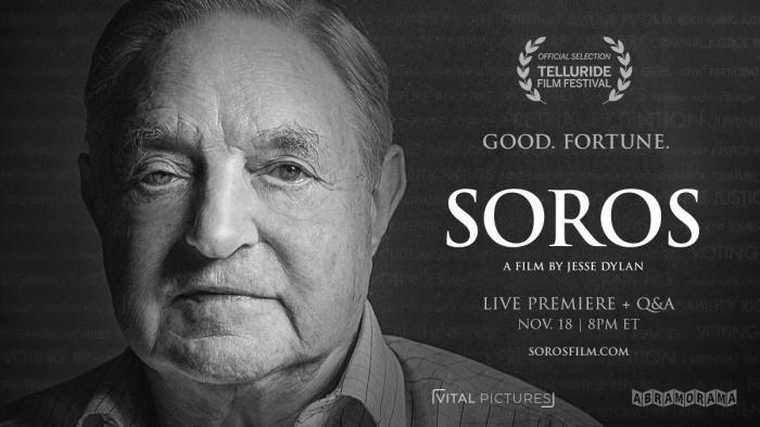By: V4 Agency
The documentary about the life of US stock market speculator George Soros is available for download since 18 November. However, the propaganda film called “Good. Fortune. Soros” has failed to fully win over the critics.
Jesse Dylan, the son of Nobel Prize-winning singer Bob Dylan, directed a propaganda film disguised as a documentary feature, about the life of US stock market speculator George Soros. The fact that the producers’ choice fell on Dylan is no coincidence because he has spent years working for the Open Society Foundations (OSF).
Even the movie’s promotion highlights that George Soros is one of the most influential and controversial figures of our time, who became known for “betting against” the Bank of England in 1992 and making a billion dollars in one day.
16 September 1992, the day when George Soros caused the pound sterling to collapse, came to be known as Black Wednesday….
The ad goes on saying that George Soros is attacked by ideologues on both the left and the right for daring to tackle the world’s problems – from free elections and freedom of the press to civil rights for minorities – and putting his money behind his fight.
Reviews did not go to extremes in praising the movie. According to opinions, it is largely about Soros’s support for global human rights issues, portraying the billionaire almost exclusively in a favourable light.
In its review, the Variety wrote, for instance, that if Soros’s organisation had a visitors’ centre to receive tourists, this film would be on continuous loop.
The portal notes that although short video excerpts of Soros’s critics have been inserted in the propaganda film, none of them is actually heard speaking their mind, apart from popular Fox News presenter Tucker Carlson. He is the only Soros foe to appear on camera in the final cut of the movie and and when he starts into a list of Soros’s causes, words come up that you do not hear anywhere else in the film, like “abortion”. It is unclear whether other critics were also interviewed.
The New York Times review of the film says that “even as hagiography, ‘Soros’ (i.e. the film) is unfocused; it races from topic to topic, with clips that seem arbitrary at best”. The review also points out that the film “isn’t an objective portrait and doesn’t aspire to be.”
The New York Times’ reference to the film as a hagiography is curious because the science focuses on the research, presentation and evaluation of the lives of saints or persons who died in sanctity.
The stock speculator says he “did have fantasies about saving the world.”
Indeed, his messianic complex is a recurring theme in Soros’s life. In an interview with the Independent in 1993, he said:
“It is a sort of disease when you consider yourself some kind of god, the creator of everything, but I feel comfortable about it now since I began to live it out.”
Moreover, in his book titled The Alchemy of Finance, Soros confessed that he did consider himself to be some kind of god.
The trailer also makes mention of the Holocaust. Previously, Soros said he became hardened during World War II, when he posed as a Christian to hide his Jewish background and avoid being deported. He then assisted a man – who pretended, for money, to be his adopted godfather – in confiscating the property of Hungarian Jews.
In an interview with CBS in 1988, when Soros was asked whether it was “difficult to help in the confiscation of property from the Jews”, which – especially for someone with a Jewish backgound, “sounds like an experience that would send lots of people to the psychiatric couch for many-many years” – he simply replied that he had no feeling of guilt.
